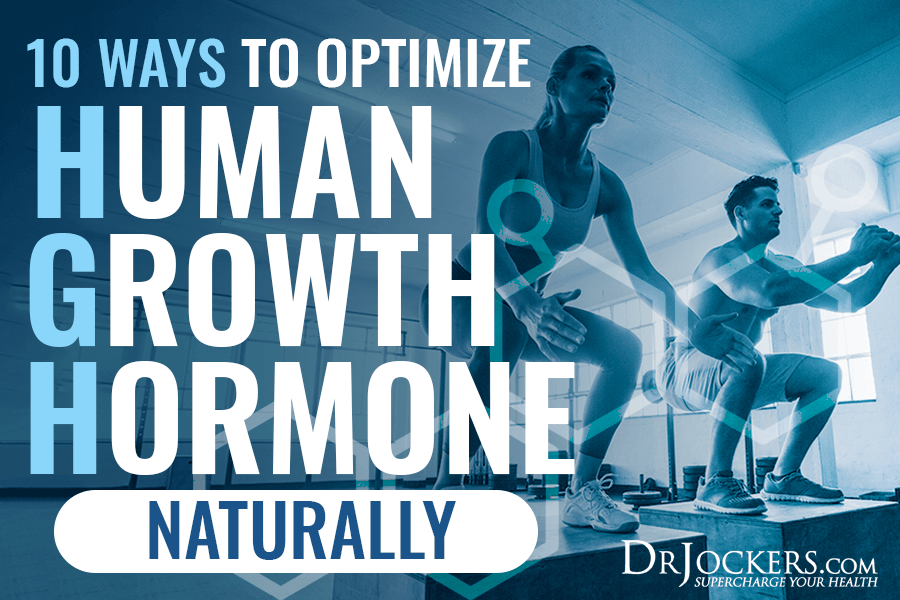 10 Ways to Optimize Human Growth Hormone Naturally for Anti-Aging
10 Ways to Optimize Human Growth Hormone Naturally for Anti-Aging
Human growth hormone (HGH) is a chemical messenger in your body that supports tissue and bone growth. It is also essential for metabolic, adrenal, and cognitive health. It is also critical for growth during infancy and adolescence and maintaining health throughout your life.
In this article, you will learn what the human growth hormone is. I will go over the primary functions of HGH. You will learn about the benefits of HGH and how to stimulate it. You will understand the difference between synthetic and natural human growth hormones. Finally, I will share my top strategies for optimizing human growth hormone naturally.
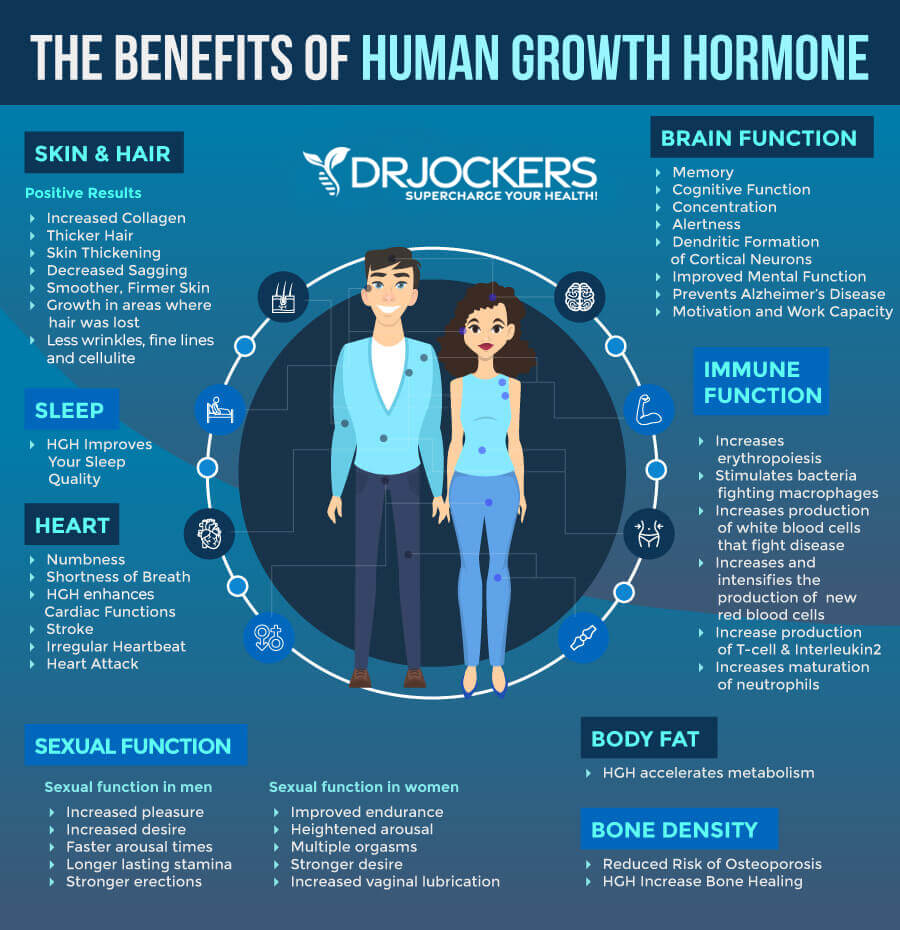
What is Human Growth Hormone
The human growth hormone is known as HGH, GH, and somatotropin. It is a chemical messenger made by your pituitary gland. Scientists first started paying attention to human growth hormone when they first noted it as a growth promoter for infants and adolescents. Now we know that human growth hormone does much more than that. It can help protein production, blood sugar levels, insulin levels, fat utilization, and so on.
According to a 1996 study published in The Journal of Pediatrics, human growth hormone levels begin to decline around the age of 30 (1). They go down by a factor of two or three during your 40s and continue to decline as you age.
Measuring your human growth hormone levels can be difficult as levels can fluctuate in your blood throughout the day. The pituitary gland releases it in small bursts at certain parts of the day, most commonly during your sleep or after exercise.
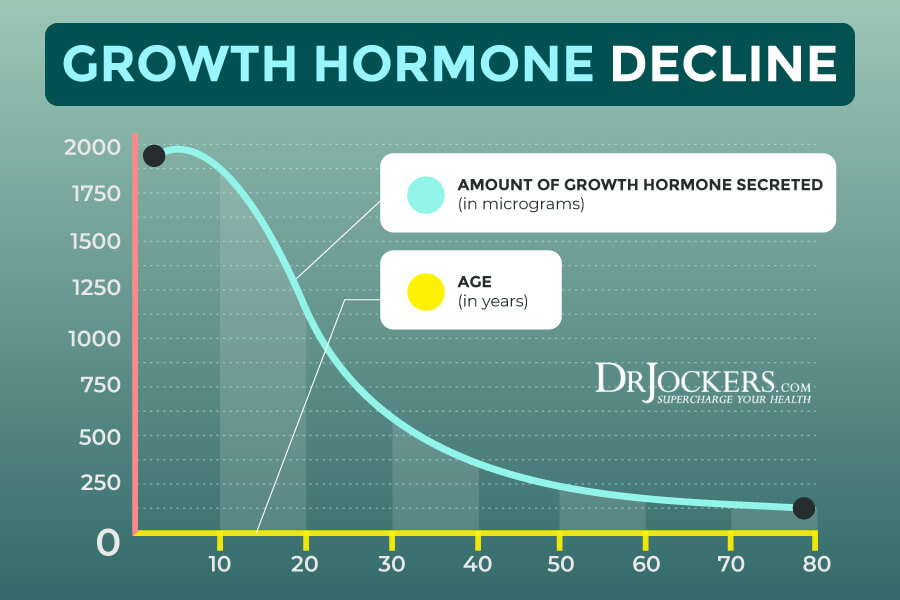
Primary Functions of Human Growth Hormone
There are two primary functions of the human growth hormone: stimulating growth and influencing your metabolism.
Human Growth Hormone Promotes Growth
According to a 2021 article published by StatPearls, one of the major ways the human growth hormone promotes growth is a direct pathway (2). It binds to two cells that trigger bone and cartilage growth called osteoblasts and chondrocytes. It triggers proteins to move to the nucleus of the cell and urges genes to prompt your bone to grow more cartilage and bone. This is particularly important in growing children.
The other way the human growth hormone stimulates growth is indirect. A 2016 review published in Clinical Medicine Insights: Endocrinology and Diabetes has found that the human growth hormone is a precursor to the insulin-like human growth factor-1 (IGF-1) protein, which helps cellular replication, repair, and growth (3). According to a 2021 article published by StatPearls, IGF-1 may help to support metabolism, help anabolism, improve cellular division and replication, and reduce apoptosis (2).
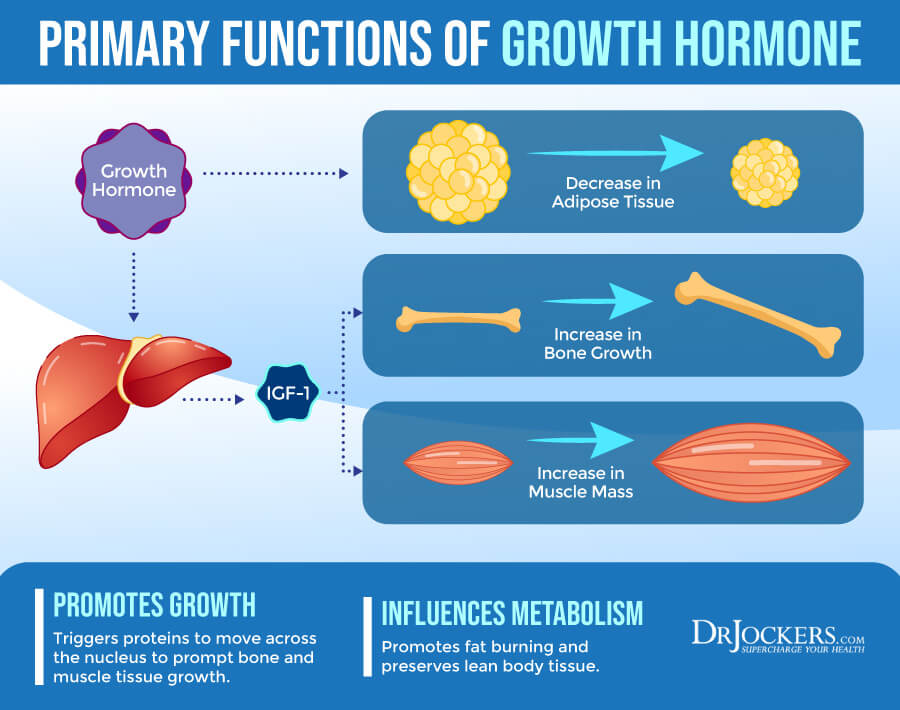
Human Growth Hormone Impacts Metabolism
The human growth hormone also influences your metabolism in an indirect way by increasing IGF-1 in the body. According to a 2021 article published by StatPearls, IGF-1 helps to increase amino acids, build more muscle, improve lipolysis, boost beta-oxidation, and improve glucose metabolism (2).
When your blood sugar levels are low, the human growth hormone attaches to the liver. This will cause an increase in gluconeogenesis, the process triggering your liver to make glucose from protein. As a result, high human growth hormone levels may lead to high blood sugar. However, it is more likely to happen from synthetic HGH rather than increasing your levels naturally.
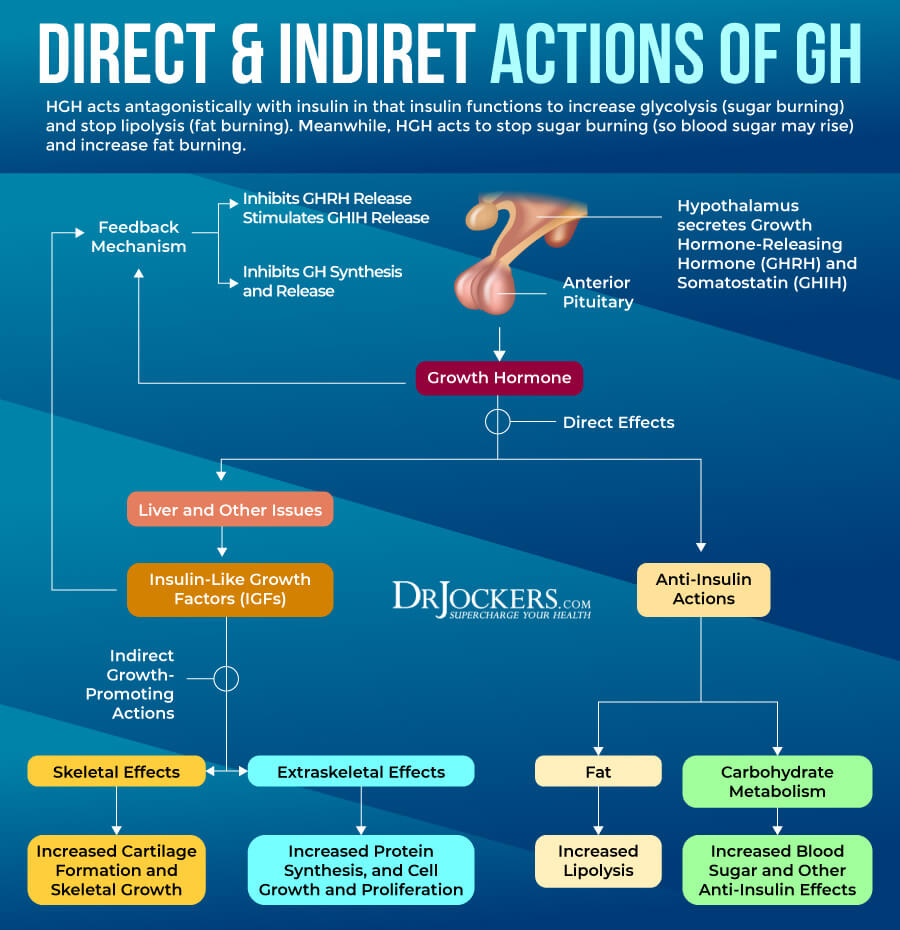
What Stimulates Growth Hormone
Like other hormones, human growth hormone works together with other compounds and hormones. There are certain chemicals that support the secretion of human growth hormones (2). The key chemicals that stimulate HGH include:
- Ghrelin: Ghrelin is the main hunger hormone in your body. It is made mainly in your stomach but in smaller amounts, also in your small intestine, pancreas, and brain. According to a 2007 review published in Obesity Reviews, ghrelin levels increase when your blood sugar levels are low (4). They increase appetite to trigger improved energy levels from food. Increasing ghrelin levels leads to the release of human growth hormone that will trigger your liver to release glucose into the bloodstream, aid blood glucose balance, and reduce the risk of hypoglycemia (2).
- Growth hormone-releasing hormone: According to a 2021 article published by StatPearls, the human growth hormone-releasing hormone (GHRH) is created in your hypothalamus and supports human growth hormone secretion and distribution (2).
- Somatostatin: According to a 2021 article published by StatPearls, somatostatin is made by most of your cells and tissues (2). Its job is to inhibit human growth hormone production, which is the exact opposite of the job of ghrelin and GHRH. All three chemicals are necessary for balance and health.
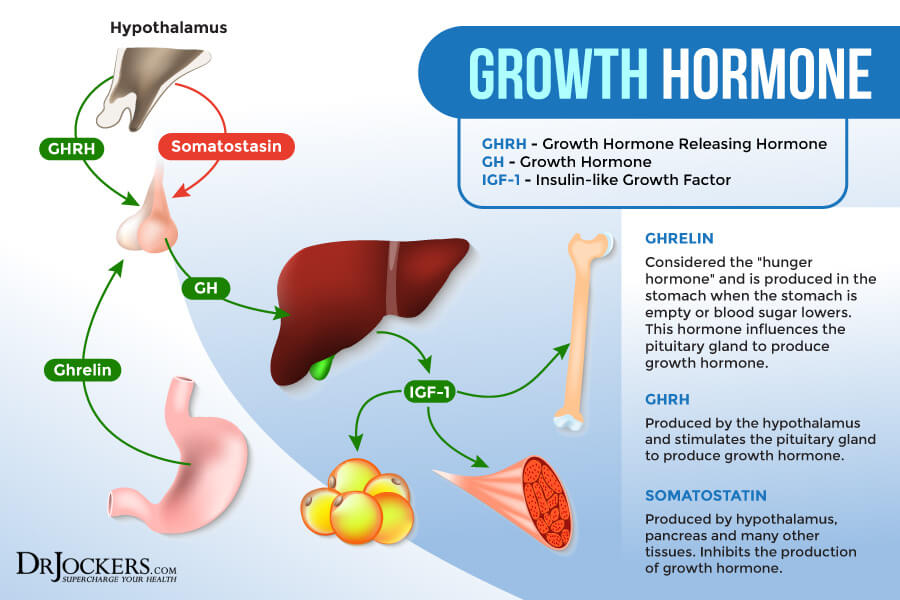
Benefits of Human Growth Hormone
The human growth hormone offers many health benefits, including improved fat burning, muscle development, bone health, brain health, immune health, and tissue healing and repair. Let’s discuss these main benefits of the human growth hormone.
Fat Burning
One of the main benefits of the human growth hormone is fat burning. People who have low levels of human growth hormone tend to have more fat mass. They tend to have both higher levels of fat around their organs (visceral fat) and body fat (adipose tissue).
According to a 2016 review published in Clinical Medicine Insights: Endocrinology and Diabetes, human growth hormones activate the fat-digesting enzyme, lipase, which helps to decrease body fat (5). This is done through the process of lipolysis, which is responsible for breaking apart triglycerides, which are stored fat, and turning them into free fatty acids or usable fats.
Lipolysis doesn’t actually destroy your fat cells but shrinks them. Over time, with age, due to the reduction of human growth hormone, lipolysis, and fat burning tend to decrease while fat storage may increase. The good news is that if you follow the natural strategies in this article, you may improve lipolysis and fat burning through increased HGH regardless of age.
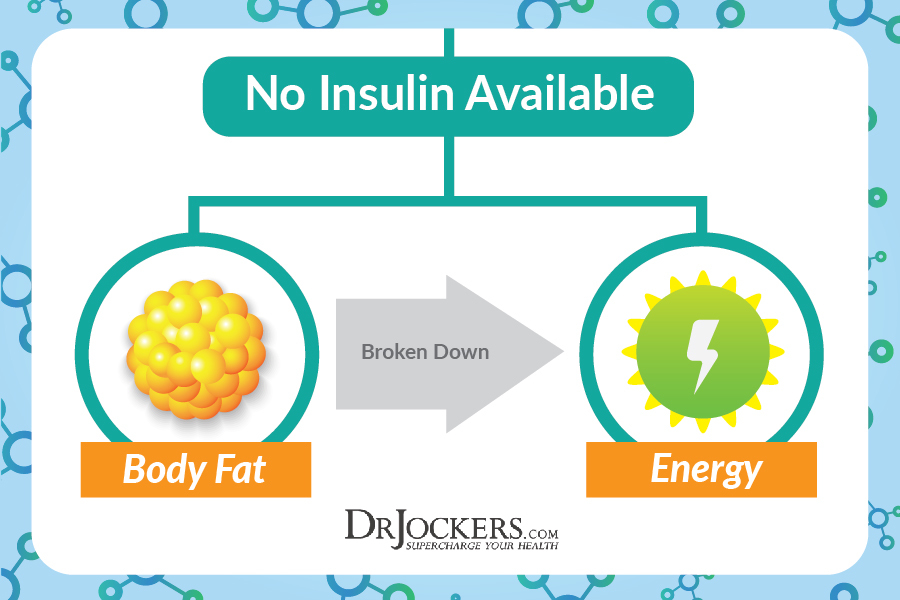
Supports Muscle Development
Another major benefit of the human growth hormone is improved muscle development and growth. This is particularly important for reducing the risk of muscle decline as you age.
According to a 2016 review published in Clinical Medicine Insights: Endocrinology and Diabetes, human growth hormone helps to hinder myostatin through the mTor pro-growth pathways and IGF-1 action (5). Myostatin is a hormone that shrinks muscles and may lead to muscle loss. Inhibiting myostatin may help to reduce the risk of muscle loss.
Human growth hormone also allows amino acids to move into your muscle tissues easier which supports protein synthesis and muscle growth. This, however, doesn’t mean that human growth hormone injections will help with muscle growth.
According to a 2013 study published in the International Journal of Endocrinology, human growth hormone therapy did not increase bench press responsive muscle strength in healthy nor in HGH-deficient men; it improved lower body strength in healthy participants (6). Natural ways of improving human growth hormone levels are always the safest and healthiest option.
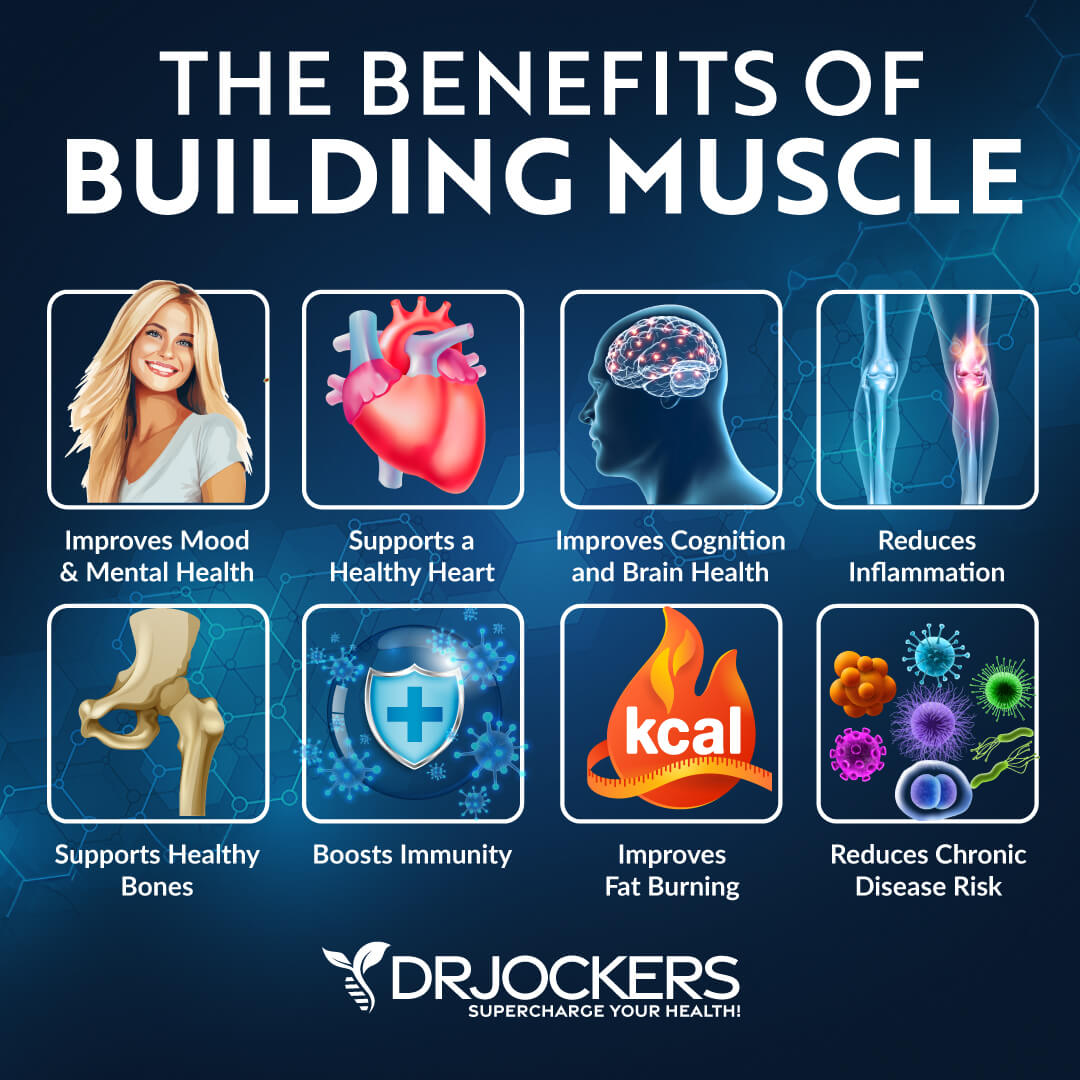
Improves Bone Health
One of the main benefits of the human growth hormone is stimulating osteoblasts, which are specialized cells responsible for creating new bone mass. Most bone growth happens early in life. Later, osteoblasts are mainly responsible for maintaining bone density and repairing broken bones.
This is a very important function in reducing the risk of bone loss, maintaining bone health, and repairing damage from injuries as you age. Improving your human growth hormone levels, thus, is critical. A 1996 study published in the Annals of Internal Medicine has found that growth hormone therapy in people with growth hormone deficiency (GDH) helped to improve bone density and bone turnover (7).
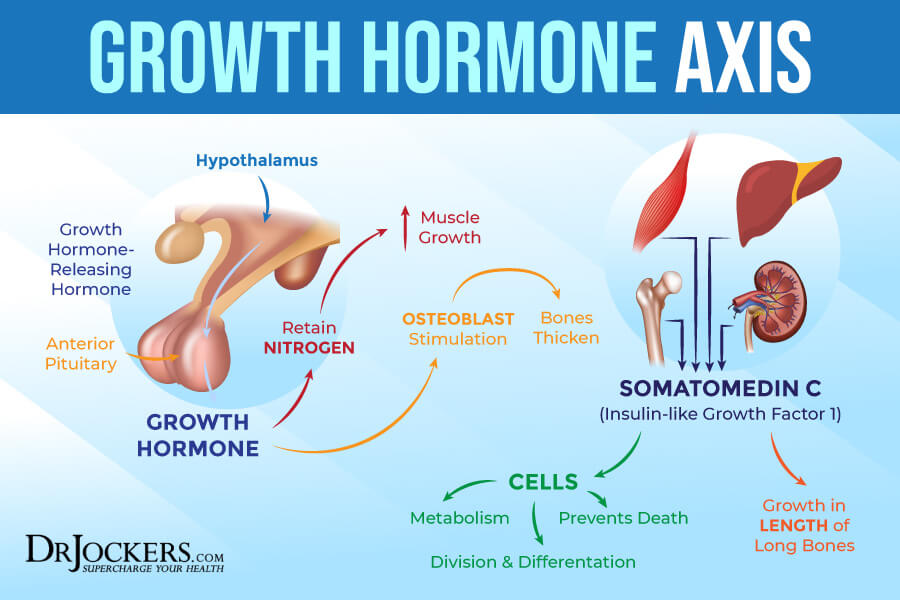
Brain Health
According to a 2016 review published in Clinical Medicine Insights: Endocrinology and Diabetes, your central nervous system can synthesize IGF-1 and HGH (5). They are both essential for early brain development. They may also help neurogenesis, which is new brain cell growth if there is an age-related cognitive decline or a brain injury.
The same review suggests that older adults with human growth hormone deficiency who receive supplemental hormone growth may experience cognitive and emotional improvements (5). Human growth hormone may also boost dopamine, serotonin, norepinephrine, choline, glutamate, and brain-derived neurotrophic factor (BDNF) to support brain health, cognition, memory, and mental health.
Immune Support
Another important benefit of the human growth hormone is immune support. A 20114 research paper published in PLoS One has found that low IGF-1 levels may be linked to poor immunity (8). Low human growth hormone levels also cause low IGF-1 levels, which may contribute to immune health challenges.
A 2004 review published in the Pediatric Endocrinology Reviews found that growth hormone may help regulate the immune system (9). Low levels of human growth hormone may lead to minor abnormalities in your immune health, however, researchers found that low levels don’t lead to immunodeficiency.
Tissue Healing & Repair
The last major benefit of the human growth hormone is tissue healing and repair. A 2016 review published in Clinical Medicine Insights: Endocrinology and Diabetes found that human growth hormone can help to repair liver damage in case of a liver injury (5).
A 2000 study published in Growth Hormone and IGF Research has found that growth hormone may support tissue healing and reduce recovery time from burns (10). A 2010 study published in the Proceedings of the National Academy of Sciences of the United States of America has found that human growth hormone may improve wound healing (11).
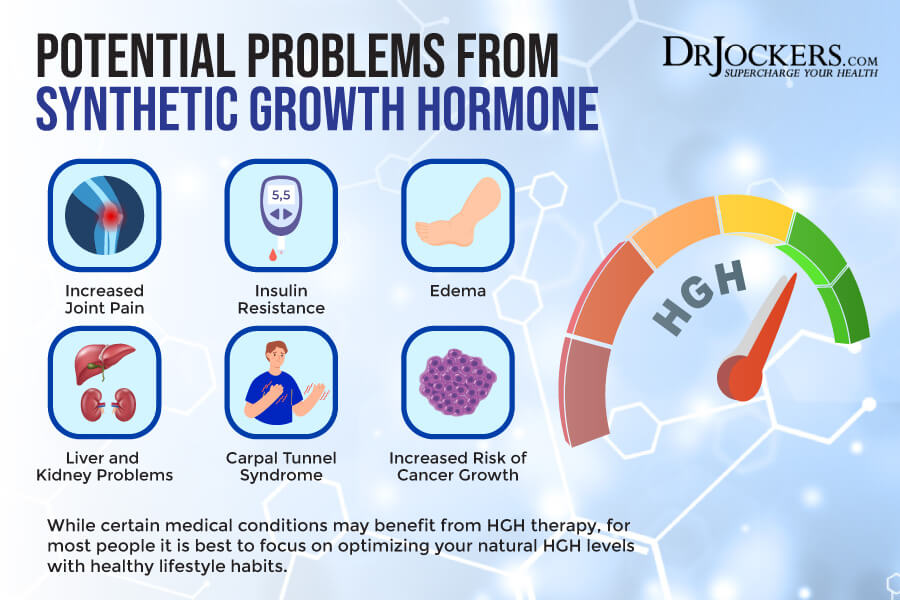
Synthetic vs Natural HGH
There are two ways to increase human growth hormone levels: naturally and synthetically. In the next section, I will go over the best natural ways to boost your human growth hormone levels.
According to a 2008 review published in Clinical Interventions in Aging, synthetic ways, including synthetic growth hormone injections, which are currently approved for growth hormone deficiency, kidney disease, Prader-Willi syndrome, Turner’s syndrome, short bowel syndrome, and muscle wasting from HIV/AIDs (12).
However, many people, especially athletes and bodybuilders, use off-label injectable growth hormones for muscle-building. This can be a controversial or dangerous practice, especially considering the risks and side effects of these synthetic growth hormone injections.
According to a 2008 review published in Clinical Interventions in Aging, the side effects of growth hormone therapy may include joint pain, insulin resistance, edema, kidney and liver problems, and carpal tunnel syndrome (12). It may even increase the risk of cancer growth. Synthetics may also be difficult to use as they must always be injected, as there is no evidence for the effectiveness of HGH pills, powders, and sprays.
Even though low levels of human growth hormone can be harmful to your health, using synthetic growth hormones may also cause several health issues. Besides the few specific health conditions it’s recommended for, using natural methods to boost your human growth hormone levels is usually the best. In the next section, you will learn the best way to do this naturally.
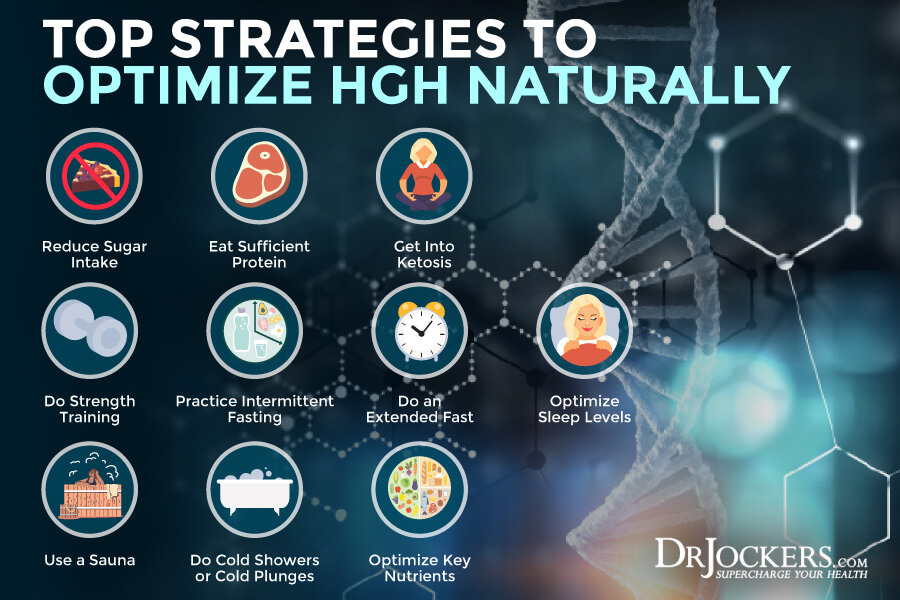
Top Strategies to Optimize HGH
Here are the top strategies I recommend for optimizing human growth hormone levels naturally.
Reduce Sugar Intake
Refined sugar and carbs can increase insulin levels, which may lower human growth hormone levels. According to a 1970 study published in Diabetologia, healthy individuals have higher human growth hormone levels than those with diabetes and insulin resistance (13). According to a 1999 study published in Metabolism, higher insulin levels and obesity may be linked to decreased human growth hormone (14).
I recommend removing refined, processed sugar and carbs from your diet completely. Keep your overall sugar intake low. For nutrient-dense sweetness, focus on low glycemic index fruits, such as berries, low glycemic index non-starchy vegetables, artichokes, Brussels sprouts, sugar snap peas, or in limited amounts of certain starchy vegetables, such as beets, carrots, or sweet potatoes. You may use monk fruit, stevia, or xylitol as sweeteners without interfering with your blood sugar or keto macronutrient ratios.
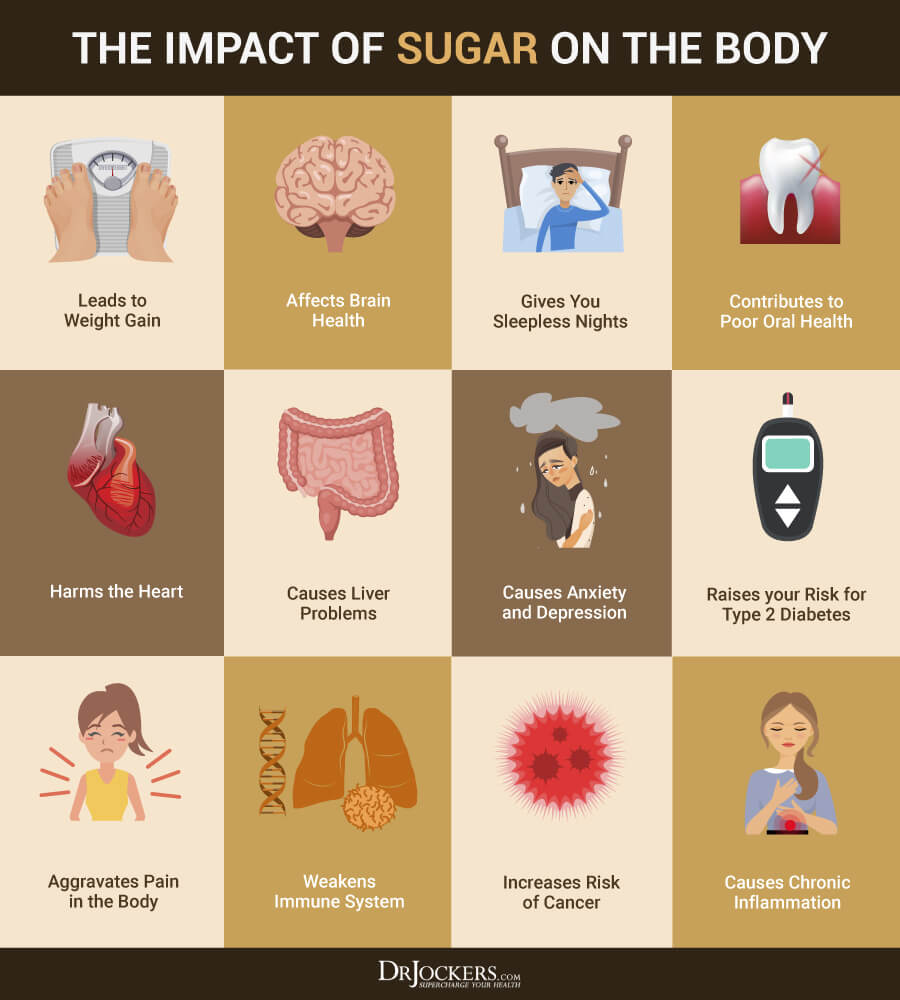
Eat Sufficient Protein
Protein is necessary for building muscle. Once digested, protein turns into amino acids, the building blocks of your tissues, and supports muscle, collagen, tissue, and organ growth and repair. According to a 2013 review published in Nutrition in Clinical Practice, low-protein diets may increase your risk of osteoporosis and muscle wasting (15). Eating a sufficient amount of protein is important.
I recommend keeping your protein at around 10 to 20 percent of your calories to support a ketogenic diet, and I will go over this in the next section. For protein, I recommend grass-fed beef, pasture-raised poultry and eggs, wild-caught fish and seafood, and wild game. Nuts and seeds may also add some additional plant-based protein to the mix.

Get Into Ketosis
Under normal circumstances, your body relies on glucose for energy. However, when it’s deprived of carbs or calories through a ketogenic, low-carb diet or fasting, it learns to rely on fat for energy instead. In this process, it gets into ketosis, which means your body is burning fat and creating ketones for energy.
Ketosis has many benefits for your health, including improved insulin sensitivity, lower inflammation, better autophagy, cellular repair, and cellular renewal. A 2005 study published in the Journal of Clinical Endocrinology and Metabolism has found that getting into ketosis with the help of a ketogenic diet may support muscle growth (16).
The ketogenic or keto diet is a high-fat (70 – 85 percent), moderate-protein (10-20 percent), and low-carb (5-10 percent) diet that helps ketosis. I recommend following an anti-inflammatory nutrition plan with ketogenic principles. Focus on healthy fats, including pasture-raised ghee and butter, lard, olives, extra virgin olive oil, avocadoes, coconut oil, coconut milk, and coconut butter. Learn more about the ketogenic diet in this article.
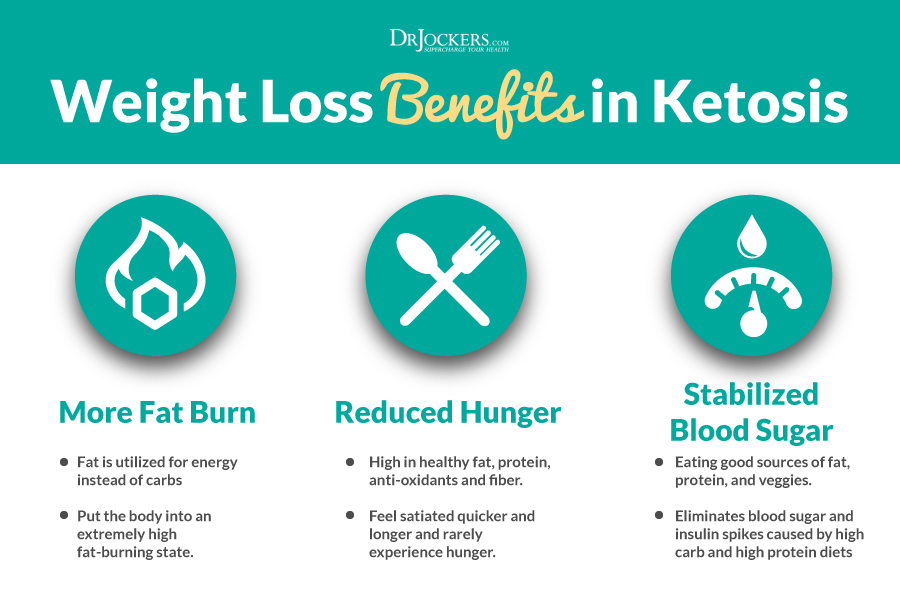
Do Strength Training
Regular exercise has many health benefits. Strength training can increase human growth hormones in your body. A 2005 study published in Medicine and Science in Sports and Exercise has found that lifting weights may significantly increase human growth hormone levels after working out (17).
I recommend trying weight training with free weights, weight machines, kettlebells, bodyweight workouts, TRX suspension trainers, or CrossFit. A 1999 study published in the Journal of Applied Physiology found that exercise intensity is also correlated with human growth hormone levels (18).
This suggests that you may benefit from hard, intense workouts, high-intensity interval training (HIIT), and coconut butter. Learn more about the ketogenic diet in this article.
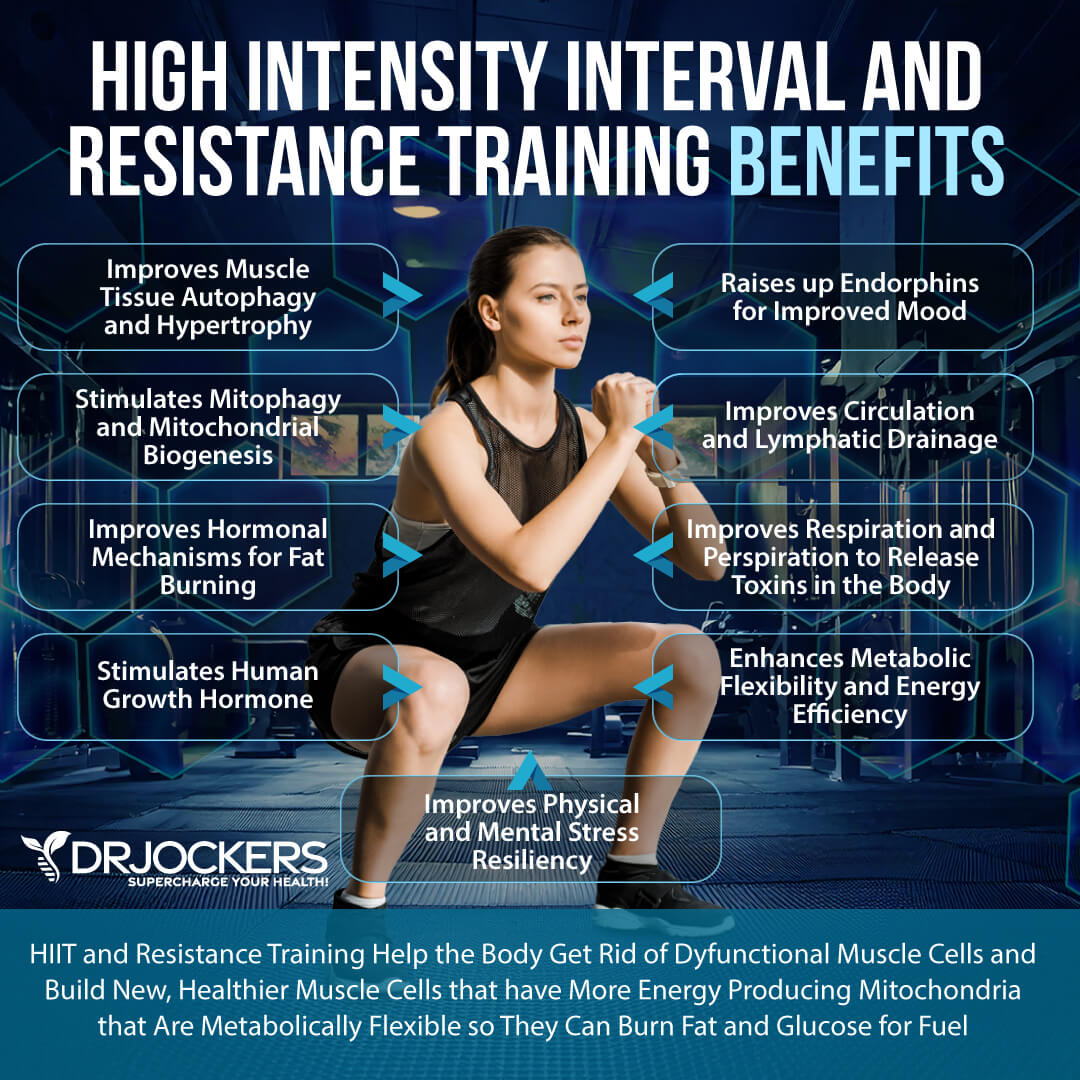
Practice Intermittent Fasting
Several studies, including a 1992 study published in the Journal of Clinical Endocrinology and Metabolism, a 1988 study published in the Journal of Clinical Investigation, and a 1982 review published in the Western Journal of Medicine, have found that fasting may improve HGH levels (19, 20, 21).
Intermittent fasting is one way to practice fasting and optimize human growth hormones. Intermittent fasting is a way of eating that cycle between a period of fasting and an eating window within one day. If you are new to intermittent fasting, begin with a 12-hour window, including your overnight sleep between dinner and breakfast the next day.
Gradually increase your fasting window. Most people feel their best with 16 hours of fasting, but your individual needs may be different. Find what works for you. To learn more about intermittent fasting, I recommend reading this article.
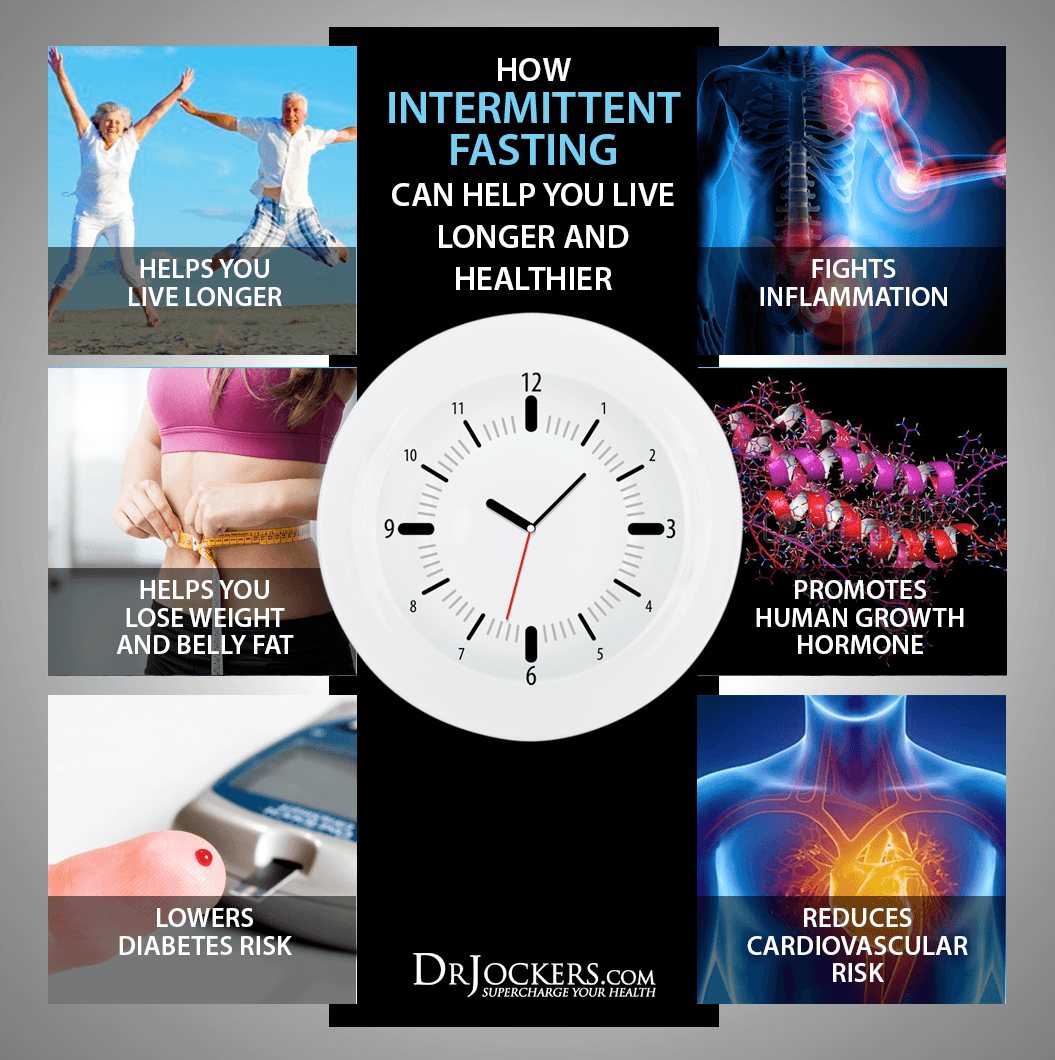
Do an Extended Fast
If you are doing well on intermittent fasting, you may try an extended fast. First, try to fast for 24 hours, and if you are doing great, you may try a two or three-day fast next. Listen to your body. To learn more about extended water fasting, I recommend reading this article.
If you are not ready for a water fast, you may want to try a Partial Fast. These are extended fast where you are not going without nutrition because you are allowed to take some liquid calories or in some cases, solid foods. Partial Fasting may also help you prepare for an extended fast. You may learn more about Partial Fasting in this article.
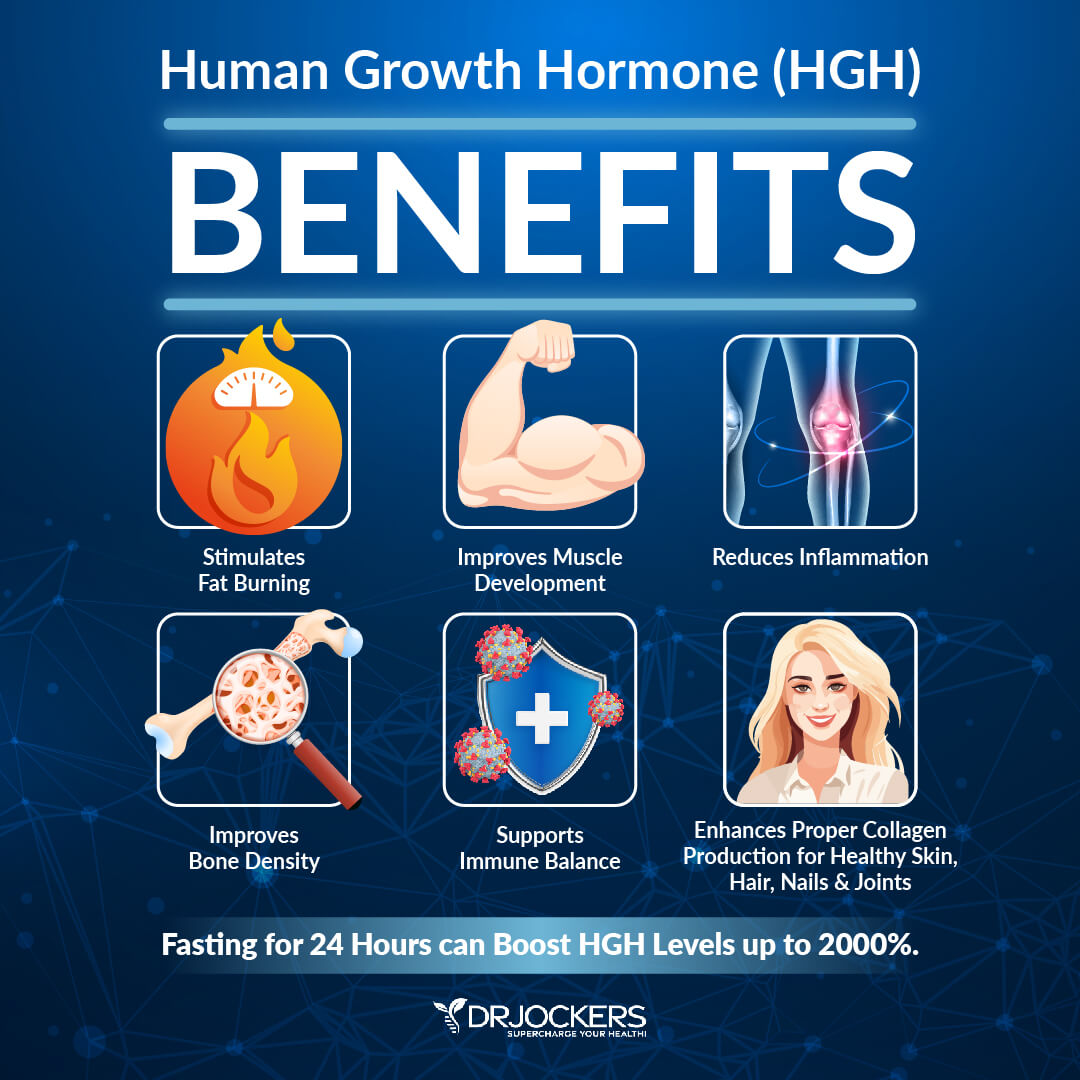
Optimize Sleep Levels
According to 1996 research published in the Journal of Pediatrics, HGH secretion happens during deep sleep (22). Sleep is important at any age, but it gets more important as you get older and human growth hormone levels decline.
To support your circadian rhythms, aim to go to bed and wake up around the same time each day. Expose your body to sunlight early in the day. Support daytime energy levels with a healthy, anti-inflammatory diet. If you drink coffee, drink moderately and earlier in the day. Avoid refined sugar, refined carbs, and energy drinks.
Avoid electronics and blue light exposure in the evening. Avoid eating in the evening to avoid raising your blood sugar and interfering with both sleep and human growth hormone production. Engage in relaxing activities in the evening, such as reading, journaling, crossword puzzles, coloring, listening to music, taking a bath, meditation, and prayer. Sleep in a cool room with a supportive bed, bedding, pillows, blackout curtains, and eye mask.

Use a Sauna
Sitting in a hot sauna can increase human growth hormone production. According to a 1989 study published in the European Journal of Physiology and Occupational Physiology, sauna use may be beneficial for HGH production. They found that two 20-minute sauna sessions at 176 F (80 C) may double human growth hormone production, and two 15-minute sessions at 212 F (100 C) may lead to five times more HGH (23). Moreover, two-hour-long sessions at 176 F (80 C) once every three days result in a 16-fold increase in growth hormones.
I recommend using an infrared sauna at least two to three times a week, anywhere from 10 to 20 minutes a session. To learn more about infrared saunas and how to use them, I recommend reading this article.
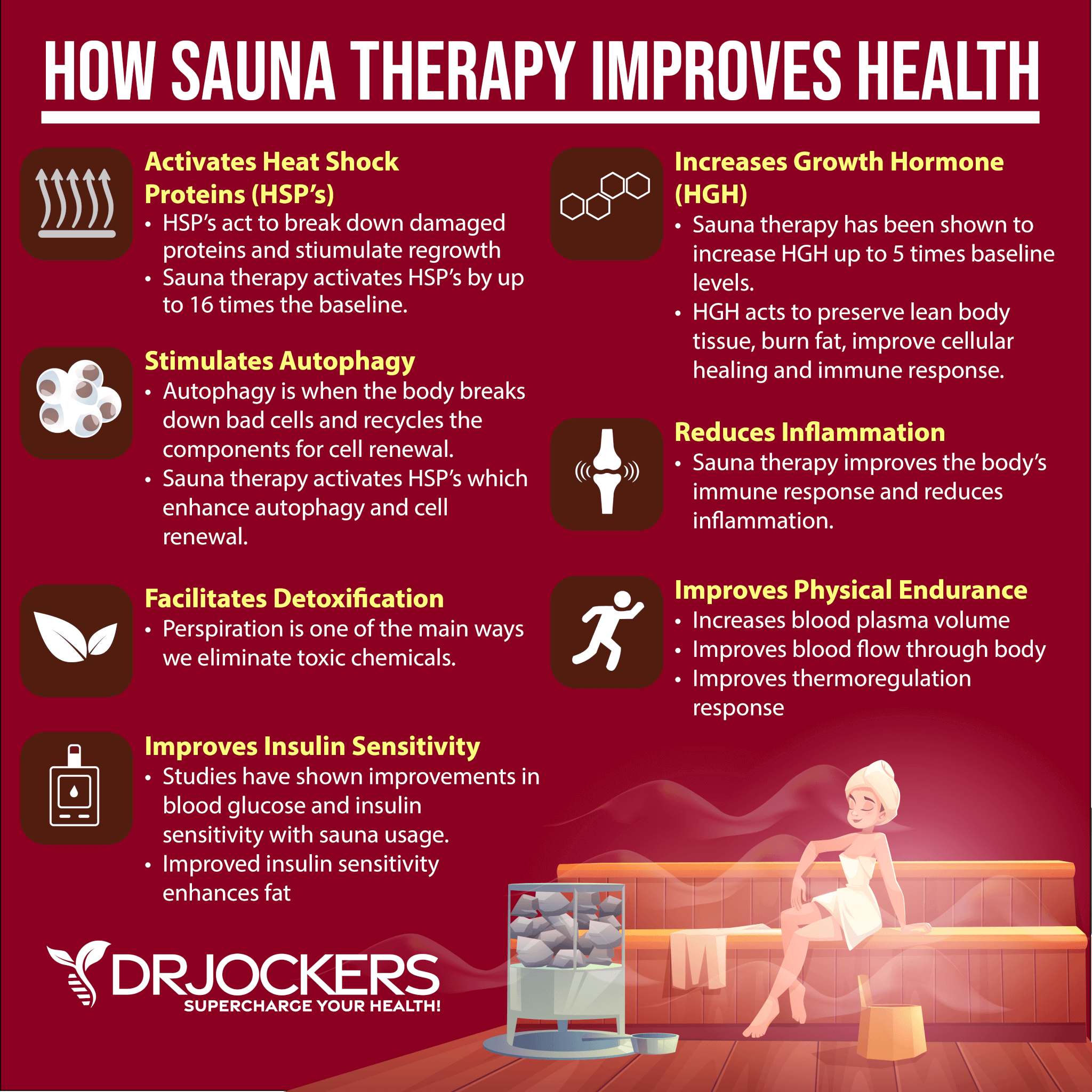
Do Cold Showers or Cold Plunges
According to a 2009 study published in Cryobiology, cold exposure, such as cold plunges or cold showers, may help to increase human growth hormone as well (24). If you have an option, take a cold plunge in a pool or lake after a sauna session.
If you don’t, cold showers have similar benefits. Finish your shower with cold water or if you are brave, gradually get used to taking cold showers.
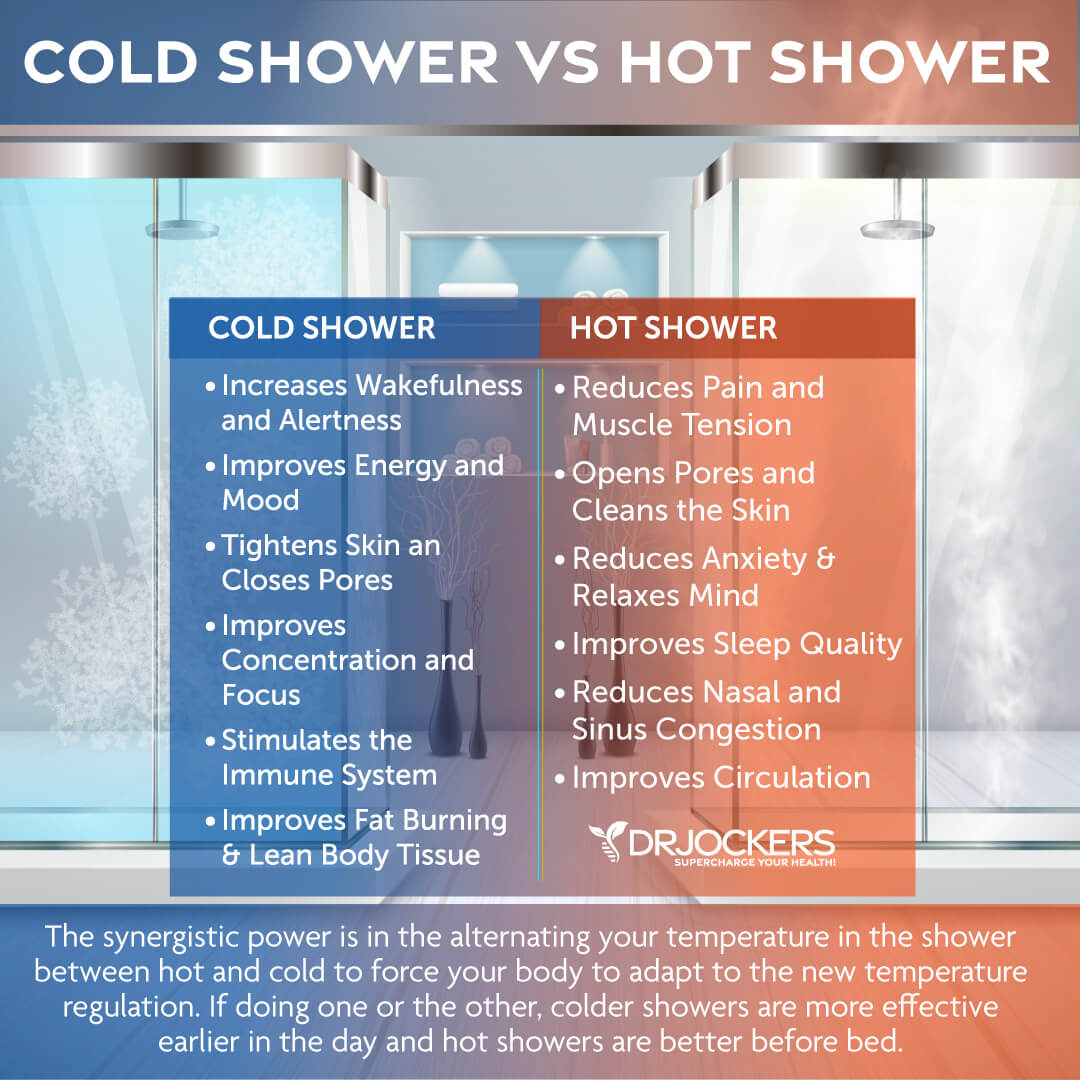
Optimize Key Nutrients
Optimizing key nutrients is one of the most effective ways of optimizing your HGH levels. Here is what I recommend.
Zinc
A 1996 study has found that zinc deficiencies may reduce IGF-1 and growth hormone levels (25). A 2020 systematic review and meta-analysis has found that zinc supplements may improve IGF-1 levels (26).
To improve your zinc levels, I recommend you consume plenty of zinc-rich foods, including meat, poultry, and seafood. Additionally, I recommend daily zinc supplementation, such as Zinc Charge.
We test plasma zinc and serum copper levels, and the ideal ratio is roughly 1 to 1.2, meaning you should have equal or slightly higher levels of plasma zinc than you have serum copper. Fortunately, the foods that are high in zinc, such as meat, seafood, nuts, and pumpkin seeds, are also very high in copper, so you get both of these together in your diet.
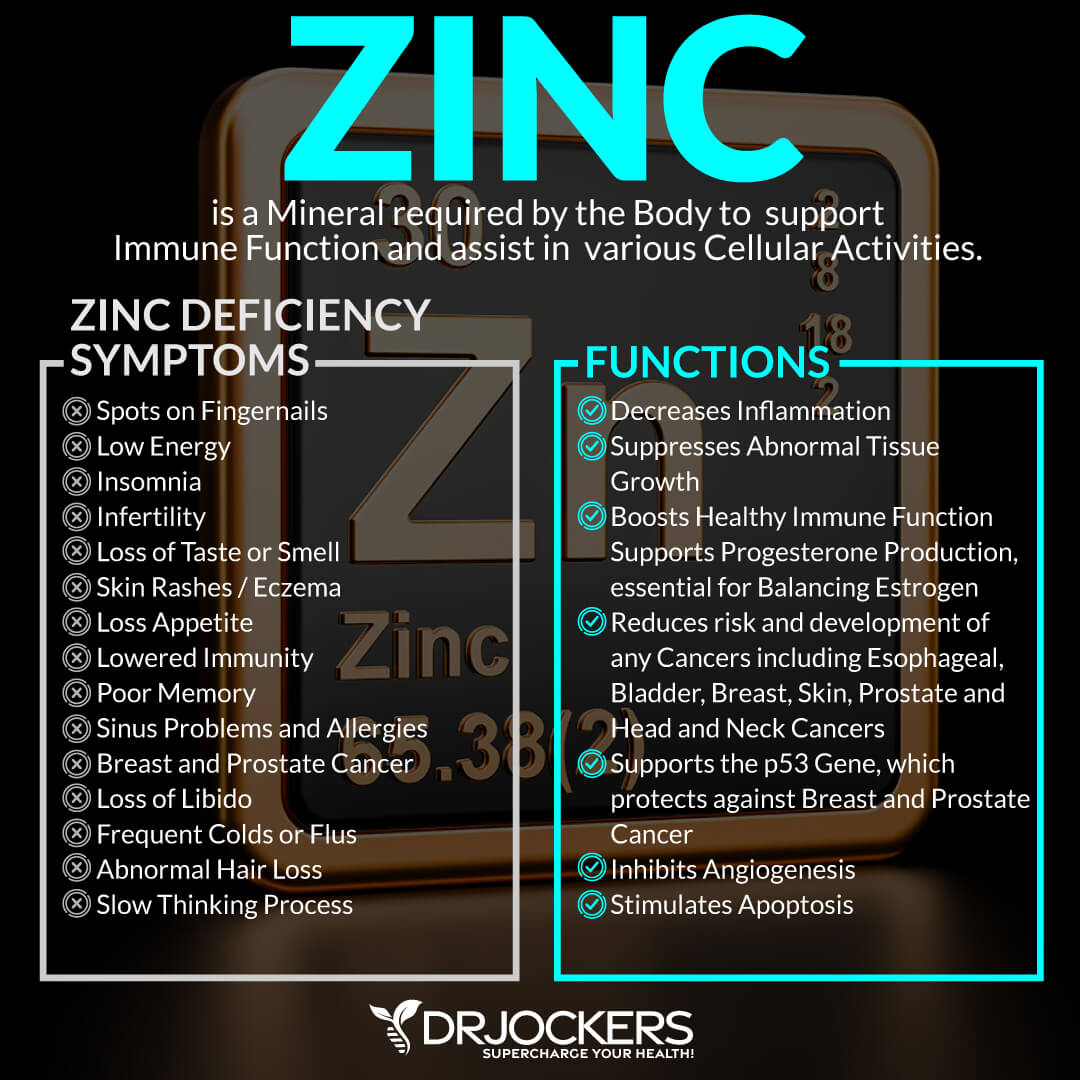
Magnesium
A 1996 study has found that magnesium deficiencies may reduce IGF-1 and growth hormone levels (25). A 2011 review published in the International Journal of Andrology has found that magnesium may support improved IGF-1 levels (27).
To improve magnesium, I recommend Brain Calm Magnesium for energy, brain health, pain relief, bone health, muscle health, joint function, and better sleep. Sleep Deep is great if you want to improve sleep and optimize magnesium. Magnesium Oil Ultra with MSM Tropical Spray is perfect for muscle pain and relaxation.
Additional Supplement Support
Additional nutrients and compounds I recommend supplementing with for optimal HGH support include:
Alpha GPC
Glycerophosphocholine or alpha GPC is a brain-boosting nootropic. A 2012 clinical trial published in Nutrition has found that alpha GPC may help to improve HGH secretion (28). Only 1 gram may increase levels by 290 percent in healthy young men according to the trial.
GABA
GABA is a neurotransmitter in your brain. A 2008 clinical trial published in Medicine and Science in Sports and Exercise has found that GABA may improve human growth hormone levels (29). I recommend GABA Calm to experience the benefits of GABA.
Melatonin
Melatonin is a hormone that promotes sleep. According to a 1993 clinical trial published in Clinical Endocrinology (Oxford), melatonin may help to increase HGH secretion (30). I recommend Sleep Support for melatonin benefits.
Arginine
Arginine is an amino acid that supports HGH release while you are sleeping. A 1982 clinical trial published in Acta Endocrinology (Copenhagen) has found that arginine supports the secretion of growth hormone during sleep (31). I recommend Amino Strong for arginine and other amino acids.
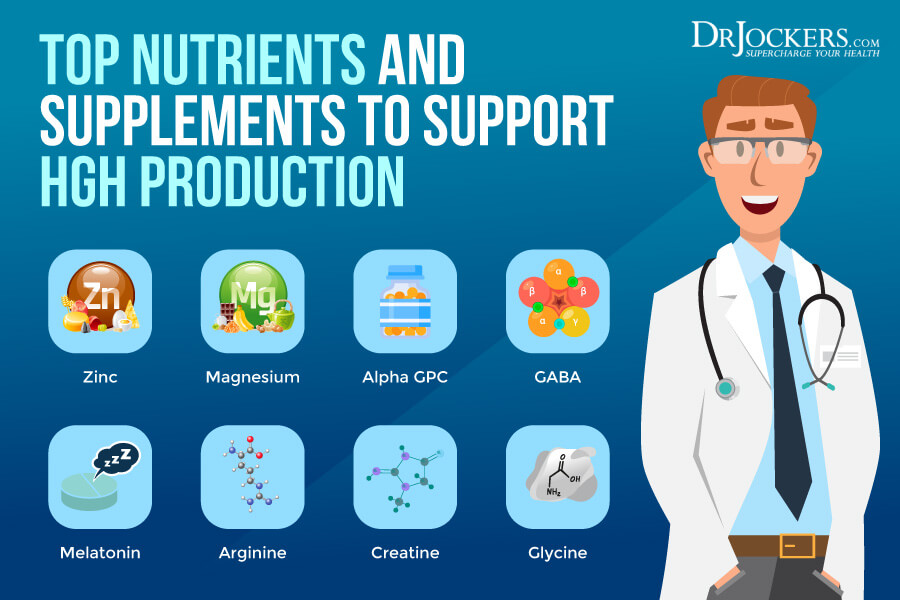
Creatine
Creatine is used as a natural exercise enhancer. A 2000 comparative study published in the Journal of Sports Medicine and Physical Fitness has found that creatine may help boost human growth hormone secretion (32).
Glycine
Glycine is an important amino acid in collagen. According to a 1978 study published in Metabolism, glycine may help to stimulate the secretion of HGH (33). I recommend Collagen Peptides for collagen and other collagen benefits.
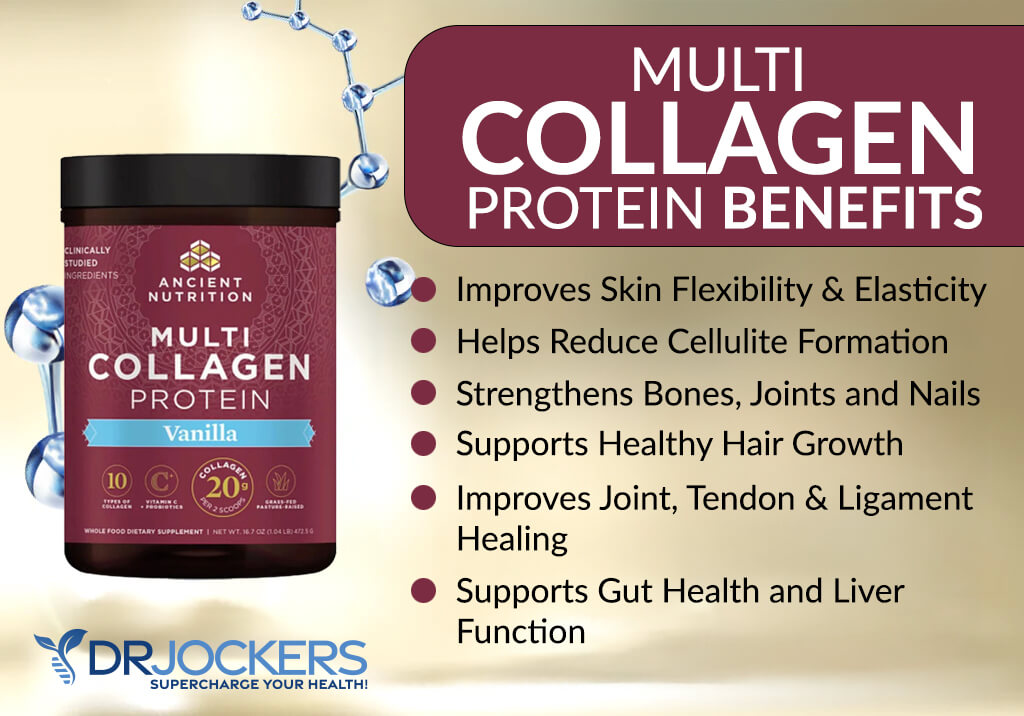
Final Thoughts
Human growth hormone is a chemical messenger in your body that supports tissue and bone growth. It is also essential for growth during infancy and adolescence, metabolic, adrenal, and cognitive health, as well as overall health and function throughout your life. I recommend that you use these top strategies for optimizing HGH naturally for better health and wellness.
If you want to work with a functional health coach, I recommend this article with tips on how to find a great coach. On our website, we offer long-distance functional health coaching programs. For further support with your health goals, just reach out and our fantastic coaches are here to support your journey.
Inflammation Crushing Ebundle
The Inflammation Crushing Ebundle is designed to help you improve your brain, liver, immune system and discover the healing strategies, foods and recipes to burn fat, reduce inflammation and Thrive in Life!
As a doctor of natural medicine, I have spent the past 20 years studying the best healing strategies and worked with hundreds of coaching clients, helping them overcome chronic health conditions and optimize their overall health.
In our Inflammation Crushing Ebundle, I have put together my very best strategies to reduce inflammation and optimize your healing potential. Take a look at what you will get inside these valuable guides below!







So, are Semorelin and Ipamorelin injections synthetic forms of HGH? My functional med doctor wants me to start using injections because my HGH levels are so low.
Dear Dr Jockers
Wonderful and comprehensive information on HGH. Well done. Appreciate you.
Dr Prakash
Thank you for your support!